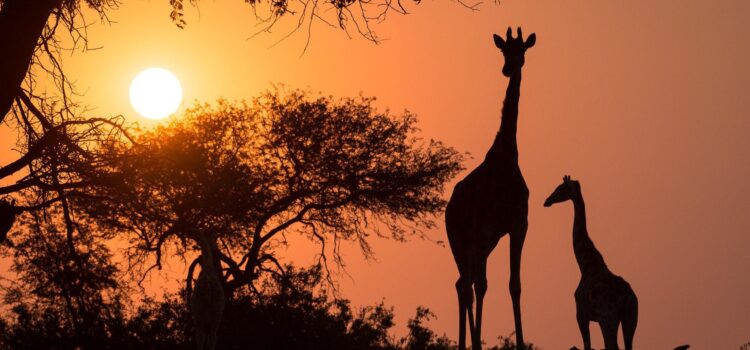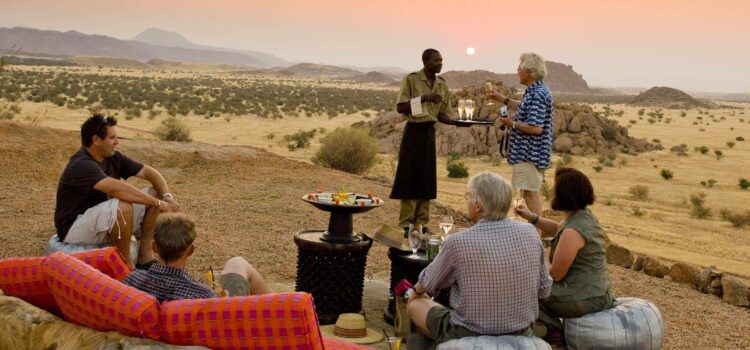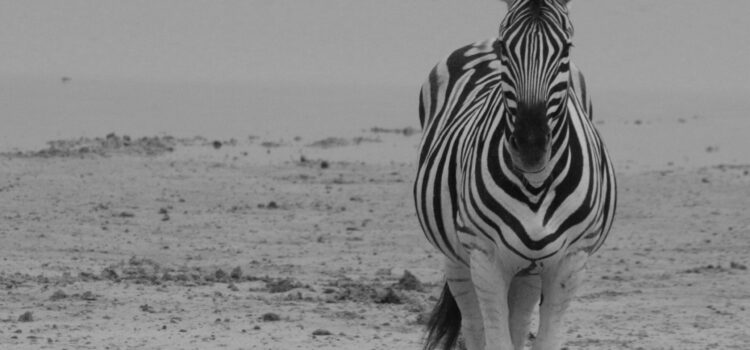When we think of the effects of the pandemic on the global economy, one of the foremost industries that we regard as having been hard-hit is tourism. This multi-faceted industry combines a supply chain of operations which create the best possible tourist experience. At the heart of these operations, is conservation.
According to (Meriam Webster, 2021), conservation can be defined as “a careful preservation and protection of something; – especially: planned management of a natural resource to prevent exploitation, destruction, or neglect,”. This means that considering the fragility of nature, we need to actively create systems which ensure the preservation of precious resources, in this case, pertaining to tourism. These resources can include flora and fauna, water, energy, and natural landscapes.
Conservation is one of the most important aspects of the Namibian tourism industry. As a country which was one of the first to include conservation of nature and wildlife into its Constitution, to the fact that over eighty communal conservancies can be found all over the country, the efforts of the country on this front have been laudable.
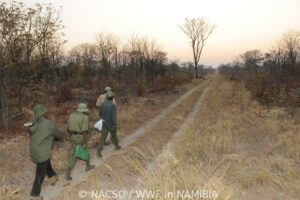
However, the Covid-19 pandemic has brought on an obstacle for conservation. Among these, have been the large economic losses and negative social effects faced by the local communities directly involved with the conservancies found in the country.
Several individuals working for these conservancies have had to take a voluntary approach to their work, as the effects of the pandemic put a halt to their income. Some community wardens from the Orupapa and //Audi conservancies in the west of Namibia had this to say regarding the effects of the pandemic on their work:
Abia Kavita – 23 years as a game guard
Position: Community game guard since 1997, Orupupa Conservancy
Job responsibilities: To conserve wildlife and natural resources
“I have been serving as a game guard for 23 years now, and I can tell that the landscape has pretty much changed. I don’t get to see much wildlife like I used to anymore. So much has changed in such a short period of time due to Covid-19 outbreak and the movement restrictions. I fear that with the current situation, it will no longer be business as usual. We will suffer and so will the wildlife. I would like to tell people about the importance of having wildlife and natural resources and encourage them to continue taking care of them.”
For Martha Lambert seeing wildlife and beautiful landscapes makes her day
Position: Farmer and game guard since 2006, //Audi Conservancy
Job responsibilities: Conduct patrols, monitor natural resources and work to mitigate human wildlife conflict
“As a game guard, my job involves doing patrols in the conservancy and keeping track of natural resource incidences such as wildlife sightings, mortalities and human wildlife conflicts in my event book.
After doing my morning house chores, I take a cup of tea and start walking in the field at around 9 am, sometimes 10. It is so quiet out there, the only thing you hear is birds singing. Walking around in the field, seeing wildlife and the beautiful landscapes makes my day.
My conservancy does not generate income at the moment and so we do this voluntarily. My income comes from farming small livestock-goats, which I sometimes take with to go grazing in the field and look after them while I am doing my job.“
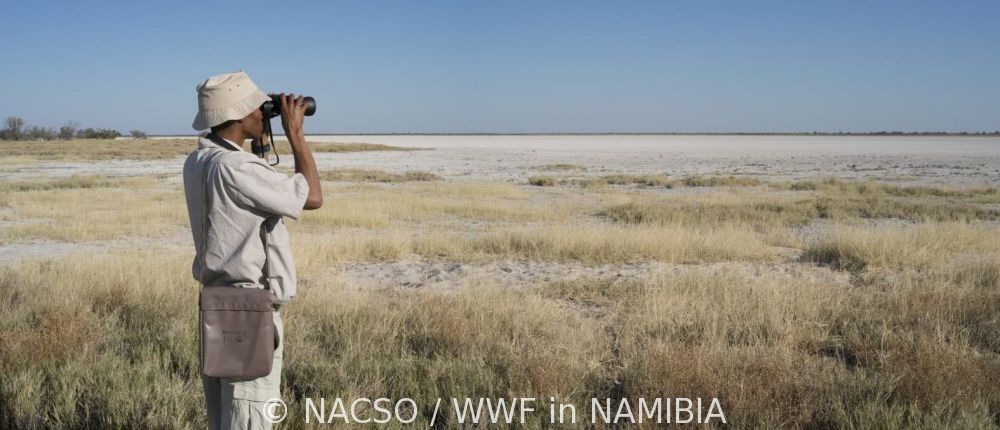
Hiamaundu Hinu on the importance of conserving nature
Position: Community game guard since 1997, Orupupa Conservancy
Job responsibilities: To conserve wildlife and natural resources
“This job is very important to me and helpful to my family. In this difficult time,I will try to my level best to do patrols and monitoring where I can. I would also like to ask the government and NGOs to help us in this situation. I will try to encourage the whole community to look after our natural resources and teach them the importance of conserving our nature. We pray that this Covid 19 will come to an end so that things can go back to normal.” (Conservation Tourism in Namibia, 2021)
We can see from these perspectives that the motivation for being involved in conservation is not solely the financial benefits, but it stems from a deep compassion for the natural world. These individuals highlighted that the pandemic not only affected the human conservators, but also the quality of the conservation efforts.
The numerous travel bans, lockdowns and restrictions affected the livelihoods of many of the poorest communities in these conservancies, who rely almost solely on the money and support they get from the conservancies. Many of them have schools on site, and the impact of the pandemic has resulted in children not being able to get quality education.
As the economic crisis caused by the outbreak led to many people losing their jobs, this meant that in some situations there was a lack of manpower for all the work which needed to be done to ensure that proper conservation and nature preservation took place. This in turn created a bigger threat of poaching, as less rangers on the ground made animals more vulnerable. (Pinto et al., 2020, 7-11)
The quality of conservation has deteriorated over time, because of the fact that many of the skilled individuals who were vital in the upkeep of the conservancies, have had to let go of their jobs.
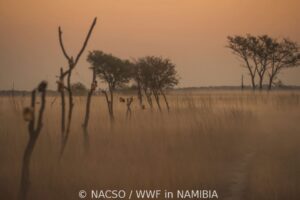
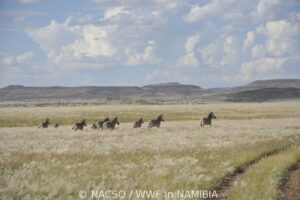
Amidst some of the more negative impacts of the pandemic on conservation, it also instilled a sense of unity within the industry, with partners and friends assisting one another through the challenging times caused by Covid-19.
An example of this is the case of Omba Arts Trust. According to (Omba Arts Trust, 2021), the organisation “is a not-for-profit social enterprise that has been supporting the sustainable livelihoods of hundreds of artisans and artists, living in rural communities in Namibia, for over 30 years.”
The organisation received numerous lovely gestures of help and assistance to stay afloat and ensure that the artisans involved all still had some form of livelihood. Private individuals and enterprises, as well as state enterprises contributed to these efforts. This is a key sure of solidarity that exists within the industry and expresses the compassion each party involved has with sustainability and conservation.
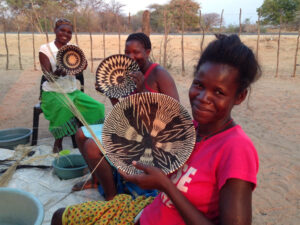
If we can take anything away from these stories, it is that the pandemic has shown us a great deal about conservation, and the true passion that individuals have for the sector. Communities have been negatively affected, but the unity and strength they show is commedable. We all hope for a revival of the tourism industry to pre-Covid levels and beyond, but we need to still consider the environment we work and participate in, and the preservation of what makes Namibia, Namibia.
References
Meriam Webster. (2021). Conservation | Definition of Conservation. From Meriam Webster: https://www.merriam-webster.com/dictionary/conservation
Omba Arts Trust. (2021). Home. From Omba Arts: https://www.omba.org.na/
Pinto, M., Sullivan, S., & Lendelvo, S. (2020, July). A perfect storm? The impact of COVID-19 on community-based conservation in Namibia. Namibian Journal of Environment, 4(Section B: 1-15), 7-11.
Pictures : Omba Arts Trust. (2021). Home. From Omba Arts: https://www.omba.org.na/
NACSO/WWF in Namibia. (2021). [Conservation Photography Namibia]. NACSO/WWF in Namibia Photo Gallery. http://www.conservationphotographynamibia.com/
